London’s shops and pubs re-opened this week, and soon it will — touch wood — be the turn of theatres, after what the New York Times earlier this week described as the longest lockdown anywhere in the world: a record 175 days in all.
Last week I celebrate the imminent return of live performances to British theatres by turning my focus onto my ShenTens favourite regional theatre venues; I’ve previously also named my ShenTens favourite West End theatres.
Today its time to celebrate some more of the amazing venues that have made London one of the great world cities for theatre, with the great spread of smaller theatres beyond the West End (and in one case, right in the centre of it).
It’s no coincidence, perhaps, that I currently live in an area that probably has the greatest concentration of these other theatres in the capital: Southwark Playhouse is literally just down the road and the Menier around the corner. Also nearby are the Globe, the Bridge, and the Unicorn and the Young Vic, plus a couple I actively avoid — the Union (though I love the space — and its cafe restaurant — I won’t go because most of their shows do not renumerate actors to the minimum standards of the Equity Fringe agreement) and the Vaults (mainly because it is so indescribably grungy that I consider it poses a health risk). Further afield, I also avoid the Finborough for the same reason that I avoid the Union, despite its wonderful track record for finding new writers and rediscovering lost gems.
LISTEN HERE:
To hear me talking about my top ten choices of theatres beyond the West End:
1 Almeida Theatre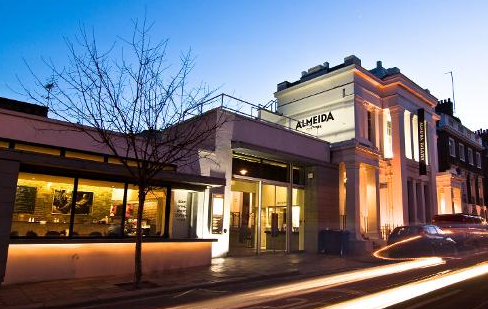
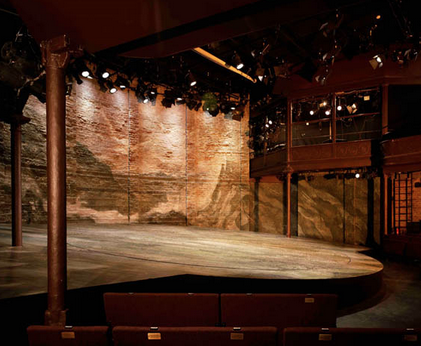
Probably the most consistently interesting theatre in London beyond the National, the 325-seater Almeida Theatre is a producing powerhouse of a theatre that in the last thirty years or so has fed more shows to the West End (and beyond) than any other theatre, the NT included.
Founded as a theatre by Pierre Audi, who acquired the 1837 derelict building in 1972 and opened it as a performance space in 1980, the Almeida was originally mainly a home for contemporary music and opera, with theatre introduced to the programming via seasons from visiting companies that included Deborah Warner’s original Kick Theatre, Complicite, and international theatre makers like Robert Wilson and Robert Wilson.
In 1990 it was taken over by actor Ian McDiarmid and actor-turned-director Jonathan Kent, who started producing their own in-house shows here (and elsewhere, under the Almeida brand, that included seasons at Hackney Empire and at found spaces that were converted into theatres like the former Gainsborough Film Studios, before they were converted into luxury flats). Productions from the Almeida like Jean Anouilh’s The Rehearsal, Eugene O’Neill’s An Iceman Cometh (starring Kevin Spacey), the world premiere of Harold Pinter’s Moonlight and Pirandello’s Naked all transferred to West End; while Hamlet (starring Ralph Fiennes in the title role) transferred from Hackney Empire to Broadway.
McDiarmid and Kent were followed by Michael Attenborough taking over as artistic director in 2001, a stable but most uneventful tenure that included Rupert Goold first making his mark here with The Last Days of Judas Iscariot in 2008, and his then-home at Headlong co-producing Lucy Kirkwood’s Chimerica in 2013 (directed by Lyndsey Turner), that then transferred to the West End; Goold was himself appointed to succeed Attenborough that year, and debuted as artistic director there with his own world premiere production of the musical American Psycho, also co-produced with Headlong, that subsequently transferred to Broadway.
The hits have kept coming since, with his own productions of Mike Bartlett’s King Charles III (2014) transferring both to the West End and Broadway, and James Graham’s Ink (2017) undergoing a similar journey. Meanwhile Rob Icke’s productions of Mary Stuart (2016, which had Juliet Stevenson and Lia Williams alternating in the two leads on the spin of a coin), and Hamlet (with Andrew Scott in the title role), also both transferred to the West End.
Almeida Theatre
https://almeida.co.uk
Address: Almeida Street, Islington, London N1 1TA
Box Office: 020 7359 4404
Twitter: @AlmeidaTheatre
2 Lyric Hammersmith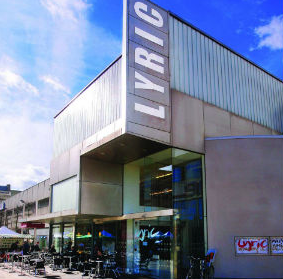
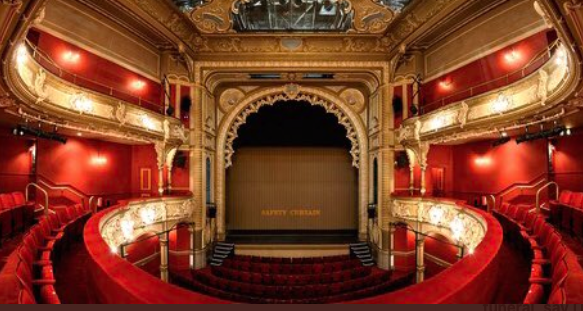
There’s hardly a more unexpected theatre in London that this Victorian gem buried inside what looks like a modern office building. It’s like entering a Tardis — you walk up two flights of steps (or take the lift) to enter a classic Victorian pros arch theatre, originally designed by the great theatre architect Frank Matcham in 1895, that was originally built on a different site nearby. But when it was demolished, the plasterwork was dismantled and preserved, before being reinstated within the modern shell of the building it is now located in, re-opening in 1979.
Under successive artistic directors that have included Peter James, Neil Bartlett, David Farr, Sean Holmes and now Rachel O’Riordan, it has become a home for variously progressive and community-based programming, and has included such triumphs as premiering the original production of Michael Frayn’s hit comedy Noises Off (1982, before it transferred to the Savoy) and the original Broadway production of Spring Awakening (that received its British premiere here in 2009, before moving to the Novello).
The theatre’s extensive refurbishment to its foyers (among the most welcoming in London now) and backstage areas have created new spaces for learning engagement that make this theatre an integral part of the local community it serves. Amongst those outreach initiatives, they offer Free First Nights to people who live or work in Hammersmith and Fulham.
Lyric Hammersmith
https://lyric.co.uk/
Address: Lyric Square, King Street, London W6 OQL
Box Office: 020 8741 6850
Twitter: @LyricHammer
3 Young Vic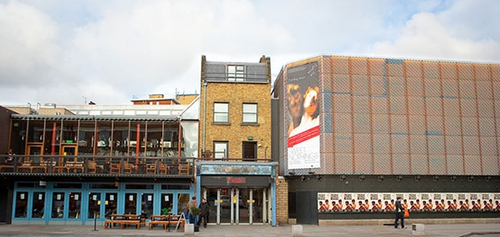
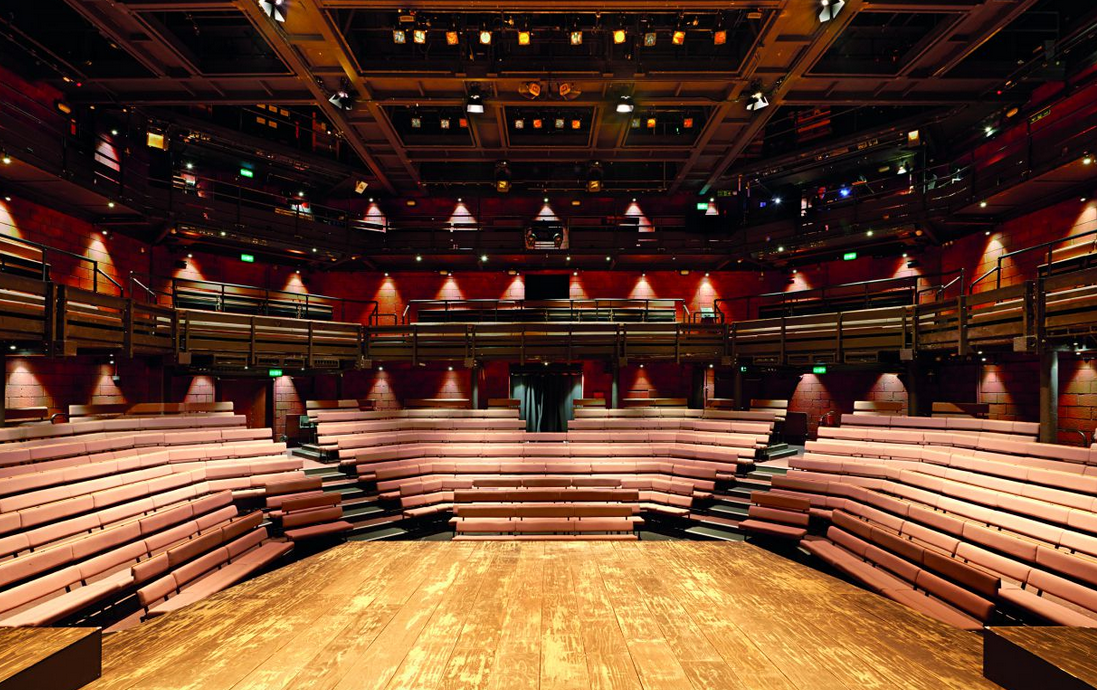
The Young Vic — so-named to contrast it with its venerable near-neighbour the Old Vic just down the street — isn’t quite so young any more: last year it celebrated its 50th birthday. Founded in 1970 by Frank Dunlop, the foyer and box office area was created in a former’s butcher’s shop, with the theatre space — a thrust stage with an auditorium that be reconfigured as in-the-round or end-on — offering 420 seats on two levels housed in a modern breeze-block building.
An extensive refurbishment programme was undertaken between 2004-2006, that created two new studio spaces — the Maria (named for the late set and costume designer Maria Bjornson, seating 150) and the Clare (named for the late theatre director Clare Venables, seating 70); a newly expanded bar and restaurant area was also created that has become an all-day and evening destination in its own right — as I wrote in a column for The Stage in 2017:
“It’s always heaving; sometimes, this is to the detriment of the theatre audience trying to get a drink before a show, as it is already packed before they even arrive. But book ahead for a table in the restaurant before the show and you’ll be all set. The summer months offer a spill-over space on the street front as well as on the upstairs outdoor terrace that makes this a go-to destination for anyone wanting to eat or drink outside. The place buzzes all day long with theatre people dropping in and out and holding informal meetings. It is the de facto London office of Bristol Old Vic artistic director Tom Morris – he even has a name plaque above a table to confirm it – and I’ll freely admit that you’ll often find me conducting interviews there, too, as it’s such a central location to meet people.”
David Thacker’s tenure as artistic director from 1984-1993 saw him turning the theatre into the London home of Arthur Miller (he built up a strong personal relationship with the late, great American playwright, and has directed more of his plays than any other director); but it was under David Lan (2000-2018) that the theatre truly became an indispensable part of London theatre’s ecology, and for a time, the most essential theatre in town, where Michael Sheen gave us his Hamlet; a new production of A Doll’s House starring a febrile Hattie Morahan as Nora transferred to the West End in 2012; the Broadway musicals The Scottsboro Boys and Fun Home received their British premieres (with the former transferring to the Garrick); Ivo van Hove directed Miller’s A View from the Bridge in a production starring Mark Strong that transferred to the West End and then on to Broadway; and Joe Murphy and Joe Robertson’s extraordinary immersive play The Jungle began its life, before transferring to the West End and New York (where it played at Brooklyn’s St Ann’s Warehouse).
Since 2018, Kwame Kwei-Armah has been at the helm, creating an intentional programme of work that has included a startling production of Arthur Miller’s Death of a Salesman that starred Wendell Pearce and Sharon D Clarke as Willy Loman and his wife Linda, and subsequently transferred to the Piccadilly, in 2019.
Young Vic Theatre
https://www.youngvic.org/
Address: 66 The Cut, Waterloo, London SE1 8LZ
Box Office: 020 7922 2922
Twitter: @youngvictheatre
4 Menier Chocolate Factory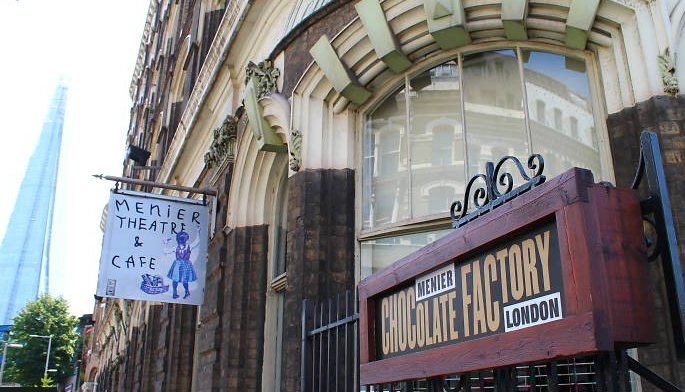
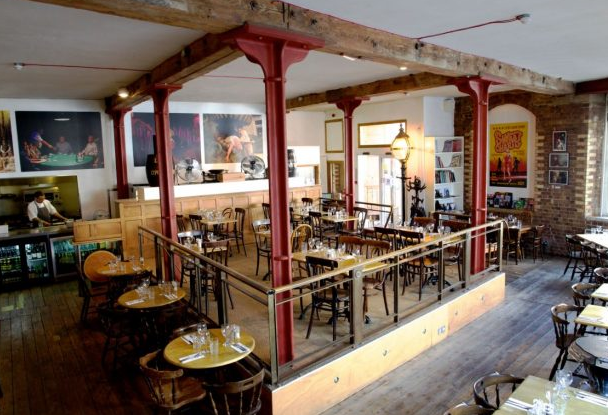
This 180 seater theatre that can be reconfigured into different layouts is housed in a former 1870s industrial building in Southwark that was at one time a chocolate factory, has become a theatrical powerhouse that’s been responsible for more West End and Broadway transfers than any other London theatre in the last decade and a half, up to and including the National.
Shows that have transferred to both the West End and Broadway have included revivals of two Sondheim musicals, Sunday in the Park with George (2005) and A Little Night Music (2009), La Cage Aux Folles (2008) and Tom Stoppard’s Travesties (2016); while shows that have moved to the West End only include Little Shop of Horrors (2006, starring Sheridan Smith as Audrey in 2006), Patrick Marber’s Dealer’s Choice (2007), Sweet Charity (2010), Shirley Valentine (2010), Abigail’s Party (2012), Merrily We Roll Along (2013), What’s It All About? (2015, a Burt Bacharach revue that was renamed Close to You for its West End transfer), The Secret Diary of Adrian Mole (2017) and Fiddler on the Roof (2018). One more show — The Color Purple (2013) — bypassed the West End to transfer directly to Broadway, where Cynthia Erivo scooped a Tony Award for reprising her Menier performance and has since gone on to a major film career Stateside.
Some really fantastic shows, for whatever reason, didn’t transfer anywhere, but linger on in the memory — the UK premiere of Sondheim’s Road Show (2011), an all-star revival of Sondheim’s Assassins (2014), She Loves Me (2016), The Bridges of Madison County (2019) and The Boyfriend (2019).
Part of the pleasure of going to the Menier is the integrated evening it provides of dinner and theatre, with pre-theatre meals served in its rustic restaurant that is also the theatre’s entrance hall.
Menier Chocolate Factory
https://www.menierchocolatefactory.com
53-55 Southwark Street, London SE1 1RU
Box Office: 020 7378 1713
Twitter: @MenChocFactory
5 Southwark Playhouse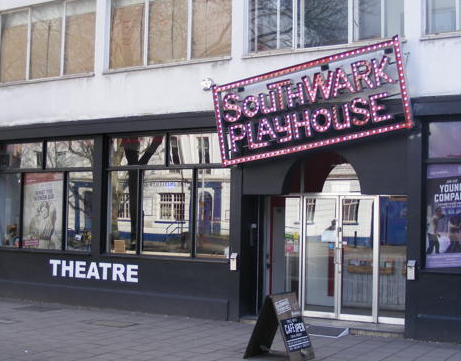
Since first establishing itself in a former workshop on the Southwark Bridge Road in 1993, this theatre has launched the careers of four visionary artistic directors — Mehmet Ergen (who went on to found the Arcola), Erica Whyman (now deputy artistic director at the RSC), West End regular Thea Sharrock and Gareth Machin (now artistic director at Salisbury Playhouse).
Under CEO Chris Smyrnios, it now operates mainly as a receiving theatre, booking in shows from independent producers and other smaller theatres, to play in its two performance spaces, the Large (240 seats) and Little (120 seats), in its current home in a former auto repair warehouse in Newington Causeway, near Elephant and Castle. It is due to move this year to new, purpose-built premises as part of the extensive redevelopment of Elephant and Castle.
It has also been at the forefront of offering digital productions when the pandemic shut down live performances.
Southwark Playhouse
https://www.southwarkplayhouse.co.uk
77-85 Newington Causeway
London SE1 6BCDBox Office: 020 7 407 0234
6 Kiln Theatre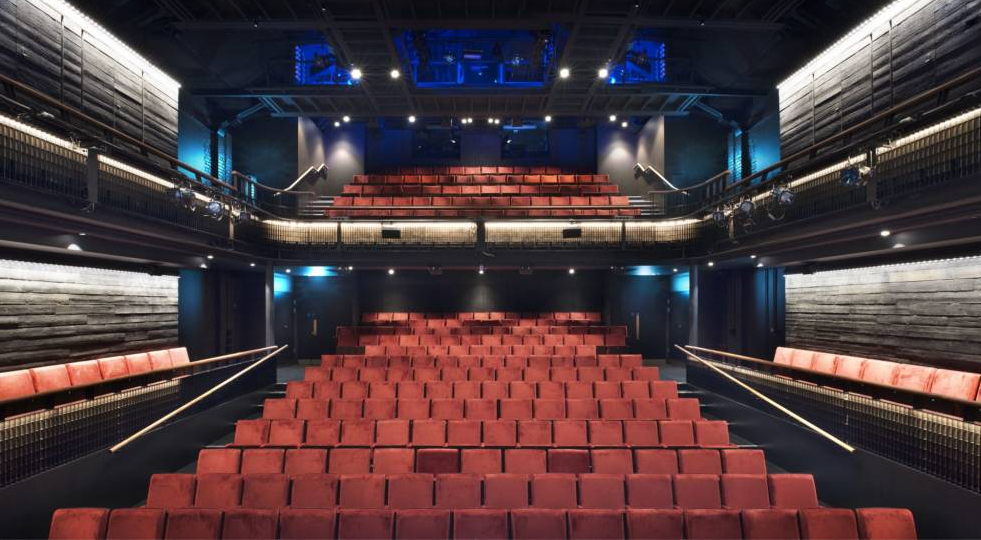
Kilburn’s Kiln Theatre — formerly the Tricycle — occupies a space that was originally the Forresters’ Hall, built in 1929, as a meeting place for the Kilburn branch of the Foresters’ Friendly Society, which helped those in need “as they walked through the forests of life”. In 1979, the Wakefield Tricycle Company discovered it, turning it into an impromptu theatre, by installing red scaffolding inside the hall to create a two-level auditorium.
Nicolas Kent became the long-serving artistic director from 1984, and during his tenure that lasted until 2012 the theatre became best known for its political documentary plays, often recreating tribunal hearings that ranged from the public enquiry into the death of London teenager Stephen Lawrence to the Savile Enquiry into the Irish troubles, as well as another devoted to what happened at Guantanamo prison.
Many of these went on to further lives elsewhere, including in the West End and Off-Broadway; also during this time, productions like The 39 Steps were launched here, prior to becoming a long-running West End hit, as well as a revival of Arthur Miller’s Broken Glass that transferred to the West End.
Indhu Rubasingham took over in 2012, and led a refurbishment programme from 2016-2018; when it reopened in 2018, it came back with a new name, the Kiln, that was not without protests, including (ungraciously) from Kent. Her tenure began with the premiere of Lolita Chakrabarti’s Red Velvet that starred Adrian Lester as Ira Aldridge, the first black actor to play Othello in London; it was subsequently revived in the West End as part of Kenneth Branagh’s season at the Garrick. Another transfer was secured for Moira Buffini’s Handbagged that premiered here in 2013.
Kiln Theatre
https://kilntheatre.com/
269 Kilburn High Road,
London NW6 7JR
Box Office: 020 7328 1000
Twitter: @KilnTheatre
7 Hampstead Theatre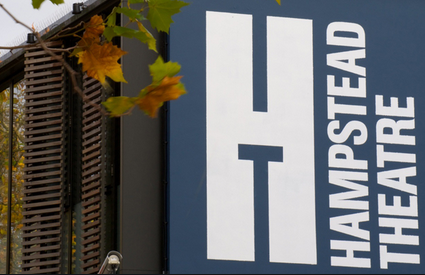
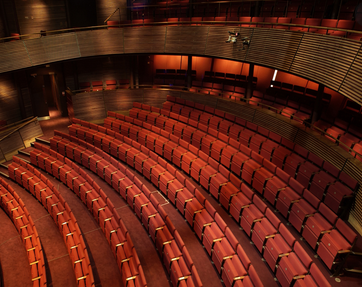
Though Hampstead Theatre was founded in a church hall in Hampstead village in 1959, it has spent most of its existence on a site that’s actually at Swiss Cottage down the street. And for the first 40 years there, it occupied a temporary portakabin building, eventually replaced by a purpose-built new building in 2003. Comprising 375 seats in a two level auditorium that can be reconfigured in flexible ways, it also has a 100 studio called Hampstead Downstairs.
In its former temporary home, when Jenny Topper presided over it (from 1988 to 2003), it was a regular source of West End shows, including the original production of Mike Leigh’s Abigail’s Party and Goosebumps, Orphans (starring Albert Finney), and Rocket to the Moon. Topper was succeeded by Anthony Clark, whose track record was far more chequered, with the theatre often receiving disastrous reviews; but Edward Hall (2010-19), put it back on track, with transfers that included David Hare’s The Judas Kiss and The Moderate Soprano, Chariots of Fire, Ian Kelly’s hilarious theatrical comedy Mr Foote’s Other Leg, and Caroline, or Change. Since 2019, the theatre has been led by Roxana Silbert.
Hampstead Theatre
https://www.hampsteadtheatre.com/
Address: Eton Avenue, Swiss Cottage, London NW3 3EU
Box Office: 020 7722 9301
Twitter: @Hamps_Theatre
8 Jermyn Street Theatre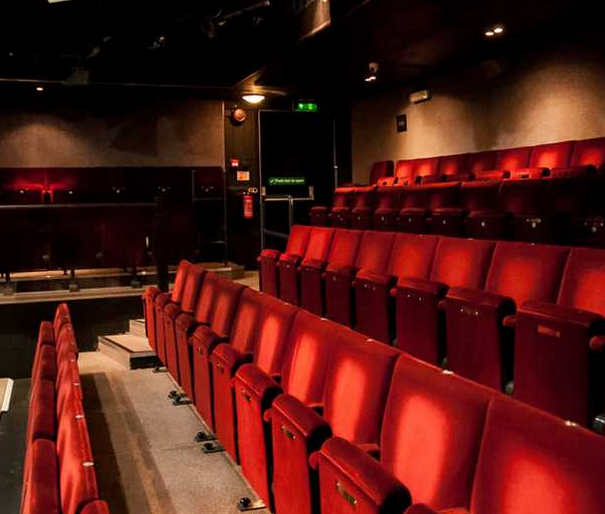
The most central of any ‘fringe’/Off West End theatre, Jermyn Street Theatre is metres away from Piccadilly Circus. Located in a subterranean basement, it occupies space that was formerly the changing rooms for a Spaghetti House restaurant (now a different — but still Italian — eatery on street level).
Jermyn Street is well-known for its luxury tailoring establishments and the theatre itself is perfectly tailored, as I once wrote in The Stage, “for intimate rediscoveries of rarely seen plays that have become one of its signatures.”
This beautifully appointed 70 seater studio theatre has long punched above its weight, with directors like Trevor Nunn regularly working here, including on a production of Beckett’s All That Fall (2012) that transferred to the Arts and then Off-Broadway, with the luxury casting of Michael Gambon and Eileen Atkins. Under current artistic director Tom Littler, the theatre is now a full-time producing venue in its own right, forging co-productions with leading regional venues, and is also committed to paying its actors in accordance with the Equity Fringe Agreement which ensures that performers are paid a legal wage.
Jermyn Street Theatre
https://www.jermynstreettheatre.co.uk/
Address: 16b Jermyn Street, London SW1Y 6STBox Office: 020 7287 2875
Twitter: @JSTheatre
9 Park Theatre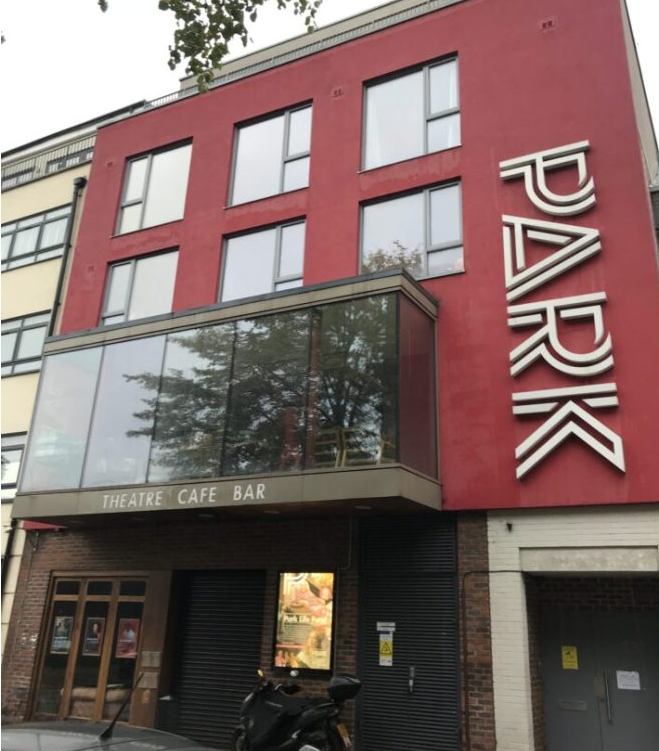
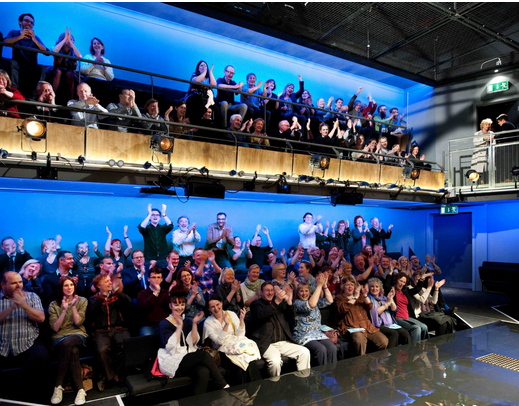
Finsbury Park’s Park Theatre, founded in 2013 by Jez Bond and Melli Marie in a former disused office building, describes itself as a “neighbourhood theatre with global ambitions”. It comprises two theatres – Park200, a studio that resembles the Donmar Warehouse with the audience wrapped around the stage on three sides and seated on two levels, and Park90, a flexible studio space on the first floor.
Partly producing its own work and partly acting as a receiving house for shows by other independent producers, it has quickly attracted celebrity actors and a devoted audience. Amongst shows that have already transferred to the West End are revivals of Oliver Cotton’s Daytona (2014), The Boys in the Band (2016) and David Haig’s Pressure (2018).
Park Theatre
https://www.parktheatre.co.uk
Address: Clifton Terrace, Finsbury Park, London N4 3JP
Box Office: 020 7870 6876
Twitter: @ParkTheatre
10 Theatre Royal, Stratford East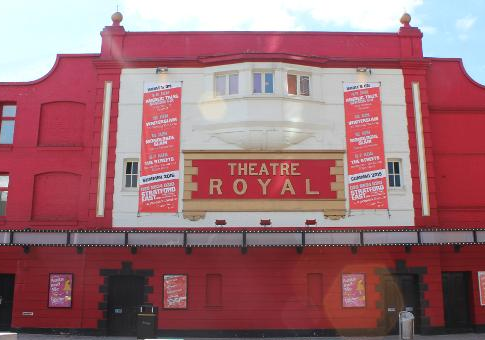
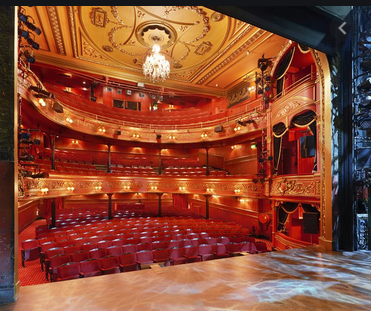
This gorgeous local proscenium arch theatre, with the audience seated on 3 levels in an intimate classic auditorium, first opened in 1884, but became best known as the home of Joan Littlewood’s Theatre Workshop company from 1953 to 1974, when the maverick director really put it on the map with such premieres as Shelagh Delaney’s A Taste of Honey and the original production of Oh, What a Lovely War!
She was legendarily hostile to commercial theatre, and was once reported to have told Michael Caine, “Piss off to Shaftesbury Avenue — you will only ever be a star”.
When she moved to France permanently following the death of her beloved husband Gerry Raffles, she was succeeded in turn by Ken Hill, Clare Venables and then her own protege Philip Hedley, who presided over a 25 tenure at the helm from 1979 to 2004, during which time the theatre actively promoted local black talent. It was on his watch that Clarke Peters premiered Five Guys Named Moe, before Cameron Mackintosh transferred it to the West End; it was also here that The Big Life was developed before transferring to the West End.
But the bigger contribution to musical theatre was the fact that it was here, in 1973, that Stephen Sondheim first saw Chris Bond’s play Sweeney Todd that led him to create arguably his greatest masterpiece that premiered on Broadway six years later.
From 2004 to 2017 Kerry Michael was artistic director; since 2017, the theatre has been led by Nadia Fall.
Theatre Royal, Stratford East
https://www.stratfordeast.com/
Address; Gerry Raffles Square, Stratford, London E15 1BNBox Office: 020 8534 0310
Twitter: @stratfordeast
ALSO WORTH KNOWING ABOUT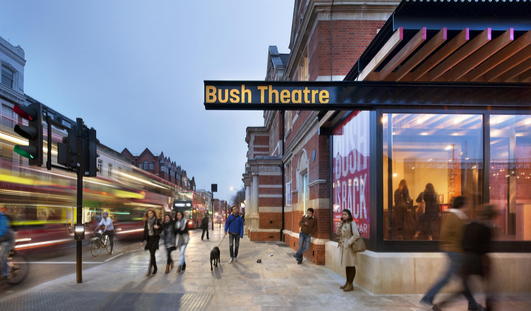
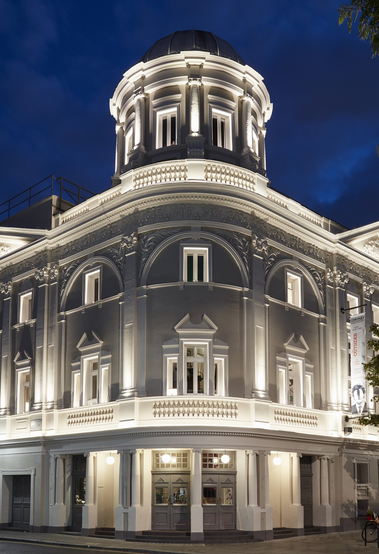
I was only able to select 10 favourites; the following are theatres I don’t visit nearly enough, but wish I had more time to support (listed in alphabetical order):
Above the Stag Theatre: Originally founded by Peter Bull — whose day job is a flight attendant with British Airways — above the former gay pub of the same name in Victoria behind the Victoria Palace Theatre (long since demolished to make way for the new shopping centre there), it has occupied a new home under the railway arches in the London gay village of Vauxhall, along a stretch that also includes a branch of the gay sauna Chariots.
Above the Stag Theatre
https://abovethestag.org.uk/
Address: 72 Albert Embankment, London SE1 7TP
Twitter: @abovethestag
Arcola Theatre: This former paint factory in Dalston is now a vibrant home for painting theatrical pictures. It’s also one of the most eco-friendly theatres in London.
Arcola Theatre
https://www.arcolatheatre.com
24 Ashwin Street, London E8 EDL
Twitter: @arcolatheatre
BAC: Battersea Arts Centre, located in a grand former town hall in Battersea, is a brilliant development centre for new work and theatre makers, forging the theatre and theatre creators of the future, under the stewardship of artistic director Tarek Iskander.
BAC
https://bac.org.uk
Address: Battersea Arts Centre, Lavender Hill, London SW11 5TNBox Office: 020 7223 2223
Twitter: @battersea_arts
Bush Theatre: Formerly a pub theatre on Shepherd’s Bush Green, this influential new writing hub now has its own beautiful home (pictured above left) in a former library building around the corner, now led by Lynette Linton.
Bush Theatre
https://www.bushtheatre.co.uk/
Address: 7 Uxbridge Road, Shepherd’s Bush, London W12 8LJ
Box Office: 020 8743 5050
Twitter: @bushtheatre
The Coronet Theatre: Originally established as The Print Room — being founded in a converted 1950s print works in 2010 — it moved to the former Coronet (pictured above right), whose name it now takes, in 2014. The theatre was built in 1898 by West End theatre architect W. G. R Sprague, and became a cinema full-time in 1923. Restored to theatrical use now by artistic director and owner Anda Winters, it has two theatres: the 195-seater main auditorium (in the dress circle of the former cinema), and a 90-seater studio space that has been renamed the Print Room.
The Coronet Theatre
https://www.thecoronettheatre.com/
Address; 103 Notting Hill Gate, London W11 3LB
Box Office: 020 3642 6606
Twitter: @coronettheatre
Orange Tree Theatre: Paul Miller, the artistic director of this in-the-round theatre in Richmond in south west London, took over from original founder Sam Walters in 2014. But on his first day in the job, he received a body blow when the theatre’s Arts Council Funding was summarily axed. But seven years on, the theatre is here and still thriving; it has transferred shows like Pomona and An Octoroon to the National.
Orange Tree Theatre
https://orangetreetheatre.co.uk/
Address: 1 Clarence Street, Richmond, Surrey TW9 2SA
Box Office: 020 8940 3633
Twitter: @OrangeTreeThtr
NEXT WEEK:
Next week I return from some of my favourite theatres to some of the shows that play in them, with a look at my favourite jukebox musicals.
AND FINALLY:
Special thanks to my producer Paul Branch; Howard Goodall, for theme music; and Thomas Mann for the logo design
